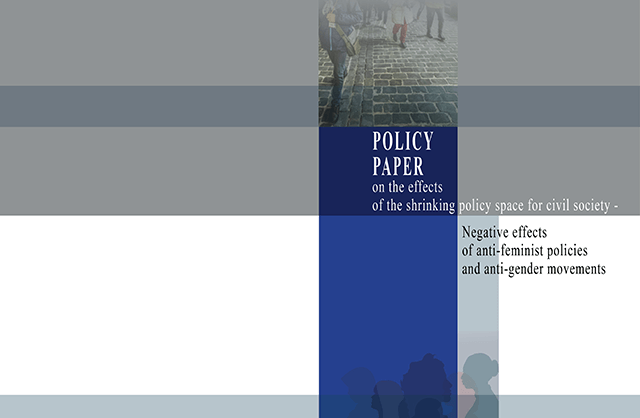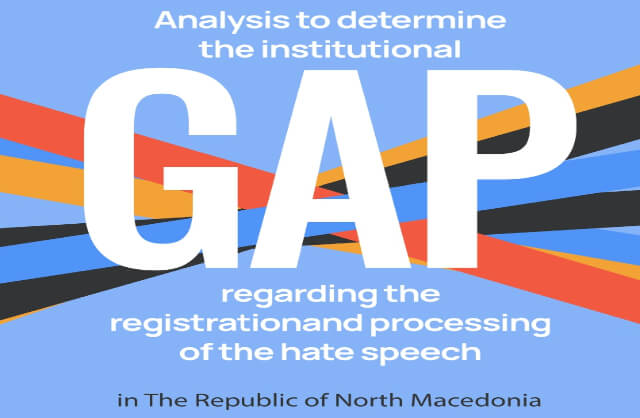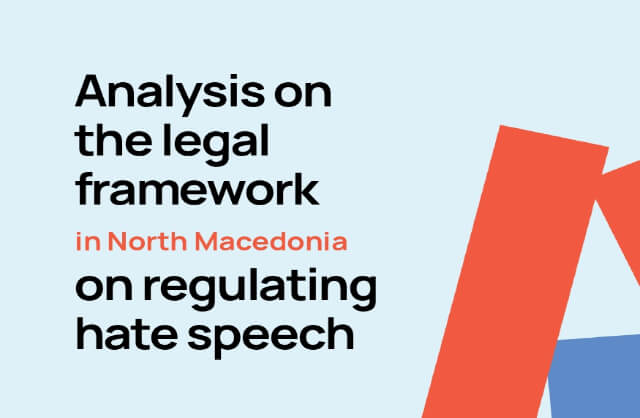Policy paper on the effects of the shrinking policy space for civil society – Negative effects of anti-feminist policies and anti-gender movements
December 15, 2023

As a continuation of Helsinki Committee for Human Rights efforts in addressing the negative effects of anti-feminist policies and anti-gender movements that are increasingly strengthening their anti-democratic and populist actions, this report serves as a summary of those efforts reflected in creation of a roundtables, as well as monitoring of the rise of those effects in North Macedonia.
This report is done was as part of a regional project with “Civic solidarity”. For context, anti-gender movements present themselves as formal and informal associations of citizens, who actively act through propaganda campaigns, political mobilization against gender equality as a concept, value, and postulate of a society. They mostly use the narrative that they are representatives of concerned parents, although they rarely show their true personal identity (strategy of the symbolism of ordinary citizens and the silent majority), and in fact they are networked at the supranational level with organizations, religious associations, and political parties. Anti-gender mobilization plays a role in the wider cultural conflict surrounding modernity: in this case “gender” is a stretched category that serves as a cover for collective fears of change, loss of national identity, excessive influence of the West and its cultural hegemony (anti-gender and right-wing populism).
Those movements have made a deep impact on the Macedonian society. It is important to note that in the public sphere there is an increased understanding of the negative impact and the security threats of the anti-gender politics – for example – initial meetings were done in 2022 in December, where only few activists and NGOs were present, but by the end of this project in 2023, both NGOs, institutions and media are trying to create a collective effort in resisting the regress of the Macedonian society.
This is a good progress, however, from the other side, the rise and impact Anti-gender movements and politics has strengthened their position and made institutional changes with erasing gender equality on local level and stopping the process of passing the Law on Gender equality.
Right-wing agendas consistently view feminism, gender equality, and anti-racism as problematic, leveraging sentiments against ‘anti-gender,’ anti-feminist, and anti-migrant issues to gather support for nationalist, cultural, religious, or political causes. Presently, there is a global surge in ‘anti-gender’ attacks, manifesting in violence directed at feminists, LGBTQI communities, and the institutionalization of feminist theory in universities, NGOs, and governments. This wave of ‘anti-gender’ aggression is also intertwined with religious, ethnic, cultural, and nationalist funda- 6 mentalism across various contexts. In these settings, gender equality is often vilified as a foreign concept linked to increased migration, liberalization, or Westernization.

